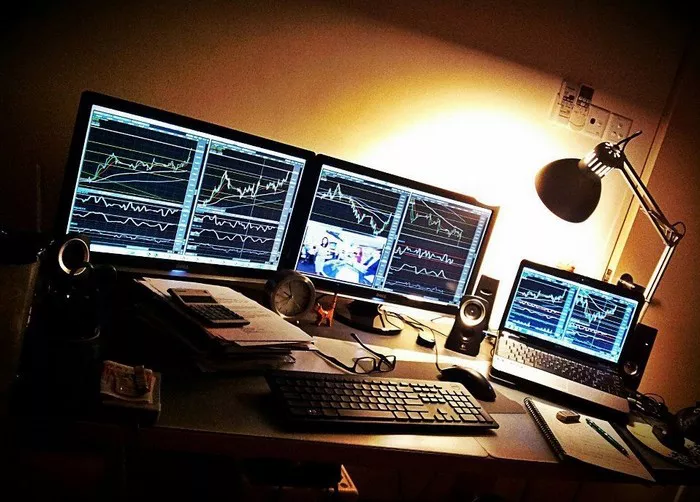Living in Japan can be an exciting and enriching experience. However, understanding the cost of living is essential for budgeting and planning your finances. This article provides an in-depth look at the costs associated with living in Japan, including housing, food, transportation, and entertainment. We will also explore how much USD you will need to sustain a comfortable lifestyle in various cities across Japan.
1. Overview of Living Costs in Japan
Japan is known for its unique blend of traditional culture and modern conveniences. While some aspects of living in Japan can be expensive, others may be more affordable compared to Western countries. The cost of living can vary significantly based on location, lifestyle, and personal preferences.
1.1 Major Cities vs. Rural Areas
Living costs in Japan are generally higher in major cities like Tokyo, Osaka, and Yokohama. In contrast, rural areas tend to be more affordable. This article will primarily focus on the costs associated with living in urban areas, as they attract many expatriates and international students.
1.2 Currency and Exchange Rates
As of now, the exchange rate fluctuates, so it’s essential to check the current USD to JPY rate before budgeting. The exchange rate can significantly affect your financial planning, especially if you’re converting funds for living expenses.
2. Housing Costs
Housing is typically one of the largest expenses for anyone living in Japan. The cost of housing can vary greatly depending on the type of accommodation and its location.
2.1 Renting an Apartment
Tokyo
Average Monthly Rent: In Tokyo, the average rent for a one-bedroom apartment in the city center is approximately ¥150,000 to ¥200,000 ($1,000 to $1,350). If you opt for an apartment outside the city center, the rent can drop to around ¥100,000 to ¥120,000 ($675 to $800).
Osaka
Average Monthly Rent: In Osaka, you can expect to pay around ¥100,000 to ¥150,000 ($675 to $1,000) for a one-bedroom apartment in the city center. Outside the center, rents can be as low as ¥60,000 to ¥80,000 ($400 to $540).
Other Cities
- In cities like Fukuoka or Sapporo, the rent for a one-bedroom apartment in the city center can range from ¥70,000 to ¥100,000 ($475 to $675).
2.2 Additional Housing Costs
When renting, consider additional costs such as:
Utilities: Monthly utility bills (electricity, gas, water, and internet) can range from ¥15,000 to ¥30,000 ($100 to $200) depending on usage.
Deposit and Key Money: When renting, you typically pay a deposit (1-2 months’ rent) and “key money,” which is a non-refundable fee equivalent to one month’s rent.
3. Food Costs
Food is another significant expense when living in Japan. The cost of food can vary based on whether you dine out or prepare meals at home.
3.1 Eating Out
Restaurants
Casual Dining: A meal at a casual restaurant can cost between ¥800 to ¥1,500 ($5.50 to $10).
Mid-Range Dining: Dining at a mid-range restaurant for two can cost around ¥5,000 to ¥10,000 ($35 to $70).
Fast Food: A meal at a fast-food chain will typically cost around ¥600 to ¥900 ($4 to $6).
Cafés and Street Food
- Cafés offer affordable options, with coffee and snacks ranging from ¥300 to ¥800 ($2 to $5).
- Street food is also popular, with prices around ¥500 to ¥1,000 ($3 to $7) for a satisfying meal.
3.2 Grocery Costs
If you prefer cooking at home, here’s an estimated monthly grocery budget:
Basic Groceries: Around ¥30,000 to ¥50,000 ($200 to $350) for one person. This includes staples like rice, vegetables, meat, and dairy products.
3.3 Summary of Food Costs
In summary, a single person’s food expenses in Japan can range from ¥60,000 to ¥100,000 ($400 to $675) per month, depending on eating habits and preferences.
4. Transportation Costs
Japan has one of the most efficient public transportation systems in the world. However, transportation costs can vary based on location and travel frequency.
4.1 Public Transportation
Tokyo: A monthly commuter pass for unlimited travel within a specific area can cost between ¥10,000 to ¥20,000 ($70 to $140).
Osaka: Similar commuter passes range from ¥8,000 to ¥15,000 ($55 to $100).
Other Cities: In smaller cities, public transport costs can be lower, around ¥5,000 to ¥10,000 ($35 to $70).
4.2 Taxis
While taxis are available, they can be expensive. A short ride typically costs around ¥1,000 ($7), with additional charges for nighttime or longer distances.
4.3 Bicycle Use
In many cities, cycling is a popular and affordable mode of transport. You can rent a bicycle for around ¥500 to ¥1,000 ($3.50 to $7) per day or purchase one for ¥30,000 to ¥60,000 ($200 to $400).
See Also: What Percentage of World Trade is in USD?
5. Entertainment and Leisure Costs
Japan offers a wide range of entertainment options, from cultural experiences to modern attractions.
5.1 Dining Out
Dining out can be a significant part of your entertainment budget. As mentioned earlier, dining at restaurants can range from ¥800 to ¥10,000 ($5.50 to $70) depending on the type of restaurant.
5.2 Activities and Events
Cultural Experiences: Visiting temples, museums, or art galleries can range from ¥500 to ¥1,500 ($3.50 to $10).
Cinema: A movie ticket costs around ¥1,800 ($12).
Theme Parks: Visiting places like Tokyo Disneyland can cost approximately ¥8,200 ($55) for entry.
5.3 Summary of Entertainment Costs
You can expect to spend around ¥30,000 to ¥50,000 ($200 to $350) per month on entertainment and leisure activities, depending on your preferences.
6. Healthcare Costs
Healthcare in Japan is of high quality, but it is essential to budget for health insurance and medical expenses.
6.1 Health Insurance
All residents in Japan are required to enroll in a health insurance program. The cost can vary based on income, but you can expect to pay approximately ¥20,000 to ¥30,000 ($135 to $200) per month.
6.2 Medical Expenses
With health insurance, a standard doctor’s visit may only cost around ¥2,000 to ¥3,000 ($15 to $20). However, without insurance, the costs can be significantly higher.
7. Miscellaneous Costs
In addition to the main categories discussed, consider other expenses that can add up.
7.1 Mobile Phone and Internet
- A mobile phone plan typically costs around ¥5,000 to ¥10,000 ($35 to $70) per month.
- Home internet can range from ¥3,000 to ¥6,000 ($20 to $40) per month.
7.2 Clothing and Personal Care
- Clothing costs can vary widely, but budgeting around ¥10,000 to ¥20,000 ($70 to $135) per month for clothing and personal care items is reasonable.
7.3 Summary of Miscellaneous Costs
In total, you might budget around ¥25,000 to ¥50,000 ($170 to $340) per month for miscellaneous expenses.
8. Conclusion
Living in Japan can be a fulfilling experience, but it is essential to plan your budget accordingly. The total cost of living will depend on your choices and lifestyle. By understanding the various expenses associated with living in Japan, you can make informed decisions about your finances and enjoy your time in this unique and vibrant country.
As a rough estimate, a monthly budget of around $2,410 can provide a comfortable lifestyle for an individual living in Japan, particularly in a major city like Tokyo. However, it is crucial to tailor your budget to fit your personal circumstances and preferences. Enjoy your journey in Japan!
Related topics:































